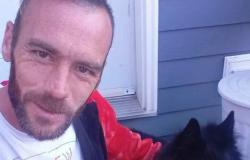Published on October 18, 2024 at 4:29 p.m. / Modified on October 18, 2024 at 4:32 p.m.
-
The majority of women under the age of 50 with breast cancer are treated with hormonal therapy to reduce the risk of a recurrence.
-
The treatment, which lasts at least five years, causes numerous side effects which can be harmful to patients’ quality of life. Around a third of them decide to stop treatment despite the risks.
-
Health professionals are becoming aware that monitoring treatment tolerance must be a priority to help patients overcome this new ordeal.
“I had hot flashes and insomnia. I felt like I had the body of an old woman, rusty as soon as I got up. I took thirty years in one go. I was stiff, shriveled, with pain in my joints. The only thing that made me feel good was going to swim in the lake in winter,” says Joanne Chassot, diagnosed with breast cancer in 2020, at the age of 38. She had already undergone a mastectomy to remove the tumor and an affected lymph node, chemotherapy for six months and radiotherapy for five weeks, when she began hormone therapy. It is the latter which causes these harmful effects. Others, generated by chemotherapy, were reinforced. “My brain no longer worked as before, with memory and concentration problems, severe fatigue,” recalls the researcher and author, now working as a freelancer. After eight months, she decided to stop hormone therapy.
Depending on scientific studies and countries, it is estimated that between 15% and 40% of patients stop their hormone therapy early. However, this offers the advantage of halving the risk of recurrence. This is a so-called “adjuvant” therapy, prescribed after other treatments (chemotherapy, surgery and radiotherapy), for at least five years to prevent relapses in patients whose breast cancer is called “hormone-dependent” – c That is, tumor cells multiply in the presence of estrogen. “Even twenty years after hormonal therapy, its benefit is still measurable,” recalls Khalil Zaman, doctor in charge of the Breast Center at CHUV. It’s a treatment that works.”
Want to read all of our articles?
For CHF 29.- per month, enjoy unlimited access to our articles, without obligation!
I subscribe
Good reasons to subscribe to Le Temps:
- Unlimited access to all content available on the website.
- Unlimited access to all content available on the mobile application
- Sharing plan of 5 articles per month
- Consultation of the digital version of the newspaper from 10 p.m. the day before
- Access to supplements and T, the Temps magazine, in e-paper format
- Access to a set of exclusive benefits reserved for subscribers
Already have an account?
Log in
Swiss






